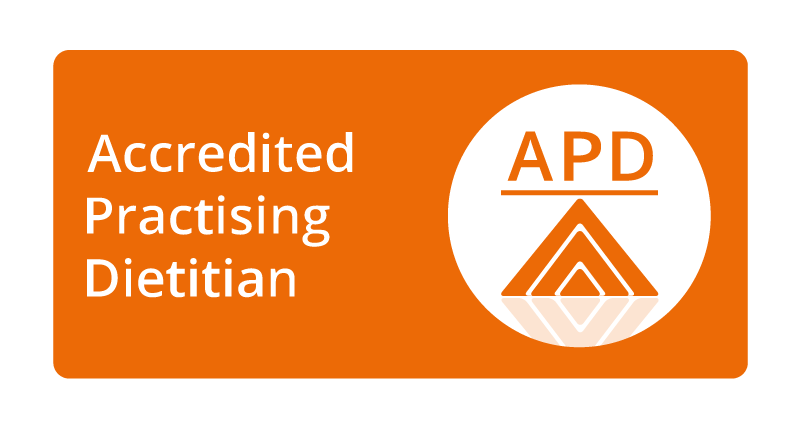“Caregiving often calls us to lean into love we didn’t know possible”
If you’re looking for an Aged Care Dietitian who delivers friendly, professional, and effective services, then look no further! I am a specialist Aged Care Dietitian who works across facilities inOrange, Dubbo and central NSW, improving food and nutrition provision to support aged care residents. As a country born and bred dietitian (raised on a farm in Narromine), I understand the distinct food preferences of the residents in rural and regional NSW and enjoy advocating not only for better nutritional quality, but for food that meets their cultural preferences.
Enjoyable food and nutrition are essential for the physical, mental, social, and emotional wellbeing of older Australians. As a local resident, I understand that food is more than just nutrients, but also about community, belonging, socialising and brings a sense of connection to residents in the facilities I support. I aim to bring food to life, to make it appealing as it has a significant impact on health outcomes.
In servicing Aged care facilities, I am passionate about addressing malnutrition through supporting the natural decrease in appetite that comes with ageing; addressing pressure injuries and wounds; preventing falls through adequate hydration and muscle maintenance; preventing macro and micronutrient deficiencies through food fortification; and addressing chronic diseases by formulating individualised nutrition plans
I work collaboratively with Aged Care Facilities, supporting Facility Managers, Care Managers, Chefs, Catering Managers, and teams to improve food provision and the mealtime experience for those who need it most.
If you need an experienced Aged Care Dietitian for your facility who understands the specific needs of rural Australians, who also lives locally, please give me a call.
Services I Offer:
- Malnutrition Screening
- Chronic Disease Management
- Menu reviews and development
- Mealtime Assessment
- Coordination between Clinical Care – Food Service – Catering
- Specialised / Therapeutic Diets
- Enteral Nutrition (PEG/PEJ feeds)
- Oral Nutrition Supplements
- End of Life Care
- Liaising with EPOA and Family
- Quality Improvement projects
- Education sessions
“A good quality meal doesn’t mean an expensive meal, but it needs a lot of thought and knowledge and care,”
Maggie Beer
What Does the Dietitian Do in Aged Care?
MANAGEMENT OF MALNUTRITION
The Royal Commission into Aged Care has identified Malnutrition as 1 of the key areas to be addressed. Australian studies have identified a prevalence of malnutrition from 22% up to 50% in RACFs. While the World Health Organization (WHO) recognises malnutrition as one of six contributing factors to the declining physical and mental capacity of older people. Malnutrition increases the risk of falls, osteoporosis and fractures, slow wound healing, morbidity, mortality and contributes to poor quality of life. The recommended framework for malnutrition screening includes initial and ongoing training of all care staff and support workers in use of the screening tool, prompt referral of all identified as being malnourished or at risk of malnutrition to an Accredited Practising Dietitian and minimum standards for the documentation of screening results and follow up.
Malnutrition screening is currently in place at all facilities in which I am the Dietitian and this enables me to promptly address any weight loss.
CHRONIC DISEASE MANAGEMENT
Alongside standard malnutrition assessments, I can provide comprehensive nutrition and dietary reviews for individual consumers. My service includes assessing for current nutritional needs, dietary challenges or concerns and health goals related to chronic conditions. All aspects of my assessment process considers the individual needs, goals and wishes of the consumer.
I formulate a comprehensive nutrition care plan in collaboration with the resident and provide a written report to the care manager including detailed and specific recommendations regarding Nutrient delivery and Coordination of care. In accordance with the nutrition care process, I recommend follow up in order to assess and evaluate the implementation and success of the interventions
I take a “food first” approach and will utilise opportunities to fortify meals the resident is consuming where possible before using supplements. This both enhances the enjoyment of meals for the resident while reducing the cost to the facility. I am happy to assist with educating catering and food service staff regarding food fortification if required.
Dietitians can implement Medical Nutrition Therapy for a variety of health concerns, beyond the typical referral for weight loss / malnutrition.
Reasons to refer to a dietitian for an individual services can include:
- Unintentional weight loss
- Chronic wounds
- Diabetes
- Dysphagia
- Texture modified diets
- Bowel and gut issues
- Food allergy and intolerances
- Dementia
- Nutrition & hydration for quality of life (particularly where use of oral nutrition supplements are prescribed)
A Dietitian visit is encouraged on fortnightly to monthly basis depending on the size of your facility. However, details can be arranged to meet the needs of your facility.
MENU REVIEWS
Enjoyable food, mealtime experience and nutritional quality is essential for the physical, mental, social, and emotional wellbeing of older Australians. A menu review is a helpful tool to identify meal adequacy and any gaps in nutrition for your consumers. It is estimated that high rates of malnutrition can be linked back to a nutritionally inadequate menu. Research indicates if a facility is experiencing >30% malnutrition rates in their consumers, benefits are seen by reviewing the food supply and menu plans. Hence why the menu review and nutritional adequacy are so important.
As I live in regional NSW, I am able to visit facilities to assess and assist facilities, which is a requirement for the auditing process. I work within guidelines from the Aged Care Quality Standards, to ensure that all indicators are addressed. As the Dietitian, I have the skills and knowledge to communicate key information between clinical care teams and food service teams, so that optimal care is delivered to all residents. My detailed report provides an effective, specific, and actionable recommendations to improve the adequacy of your menu.
My reviews include:
- An on-site visit to the facility
- Discussions with care teams and catering team members
- Review of meal serves and portion sizes
- Review of therapeutic diets
- Mealtime assessments
- Weekly analysis of menu review
- Analysis sample of recipes to determine adequate portioning of key nutrients per consumer serve
- Comprehensive report, recommendations, and outcomes
MEALTIME ASSESSMENTS
The mealtime and dining experience can have a significant impact on whether and how much a resident eats. We all know that creating a pleasant environment not only enhances food enjoyment and connection with others, but increases oral intake, thus reducing malnutrition. Therefore, it is important that the dining room, eating environment, experience of eating, assistance provided is person centred, relaxing, enjoyable, and conducive to eating. Mealtime assessments can improve the mealtime environment, reduce food waste, increase the amount of food eaten and lead to increased consumer satisfaction.
In assessing the mealtime Environment, I am able to provide specific and detailed recommendations to enhance your facilities dining experience and your resident’s overall enjoyment of meals. The report I complete for your facility can provide information for the Basic Daily Fee Supplement for Food & Nutrition, utilised by Aged Care Facilities to improve the nutrition status and health outcomes of consumers.
Important factors to consider include:
- Appropriate lighting
- Choice of furniture
- Temperature
- Tablecloths, placements, and table arrangements
- Crockery and cutlery
- Distractions
- Staff availability
- Variety
- Sensory ques
- Accessibility
COORDINATION BETWEEN CLINICAL CARE, FOOD SERVICE AND CATERING STAFF
One of the joys of working in Aged Care as a dietitian is that we are able to use all our skills – clinical, counselling skills, food service skills and advocacy skills. In RACFs, Dietitians are the key member in translating and communicating the clinical care needs of residents through to the food service and catering staff and explaining why the interventions we are implementing are important for each resident.
I can support collaboration and communication through:
- Recommendations for nutrition care directly to members of catering
- Consultation with Chef and Catering Managers regarding therapeutic foods or food fortification
- Staff workshops and education
- Meal size and protein portions
- Menu Planning
- Accommodating for allergies and intolerances
SPECIALISED / THERAPEUTIC DIETS
A High Energy High Protein diet is commonly prescribed for malnutrition in a residential aged care setting and is likely the most common therapeutic diet encountered. This is because, as we age, our appetite decreases, and we lose the signals to eat leading to weight loss.
As the population ages, we are encountering more people with food intolerances and hence more therapeutic diets are needed.
Other therapeutic diets which may be seen in Residential Aged Care Facilities include:
- Diabetic Diets
- Low Fat Diets (for medical reasons)
- High Fibre Diets
- Gluten Free/ Dairy Free (allergies and intolerances)
- Low FODMAP
- And many more.
Let us assist and take the guess work out of adjusting diets to meet consumer needs.
ORAL SUPPLEMENT RECOMMENDATIONS
As a Dietitian I take a Food First approach, so where possible I try to fortify a resident’s food with high energy, high protein additions. Oral Nutrition supplements are costly for a facility and are best used strategically and minimally. Supplement tolerance and enjoyment needs to be regularly monitored and assessed so that wastage does not occur as flavour fatigue or general dislike of a supplement can decrease compliance to recommended supplement regimes
I can assist to optimise the benefits of supplements by reviewing a resident’s preferences and tolerance to prescribed supplements as well as evaluating the benefit of the supplement to achieving their health goal. I can also determine if a supplement can or should be ceased to avoid unnecessary usage.
In more regional and remote towns, I am able to prescribe Oral Nutrition Supplements on the Medchart for Residents and get this organised for the GP, particularly in places where Medical care for residents can be difficult to acquire.
Oral Nutrition Supplements that I can advise on Include:
- Pre-thickened supplements (for dysphagia)
- Allergy and Intolerance specific products
- Nutrition powders for food fortifications
- Range of supplements including milk based, fruit based and savoury products.
CONTACT ME
For more information or to enquire about how I can help your facility with the nutritional care of your residents, please email me via the enquiry tab at the top of this page, or call me 0438 633 038


